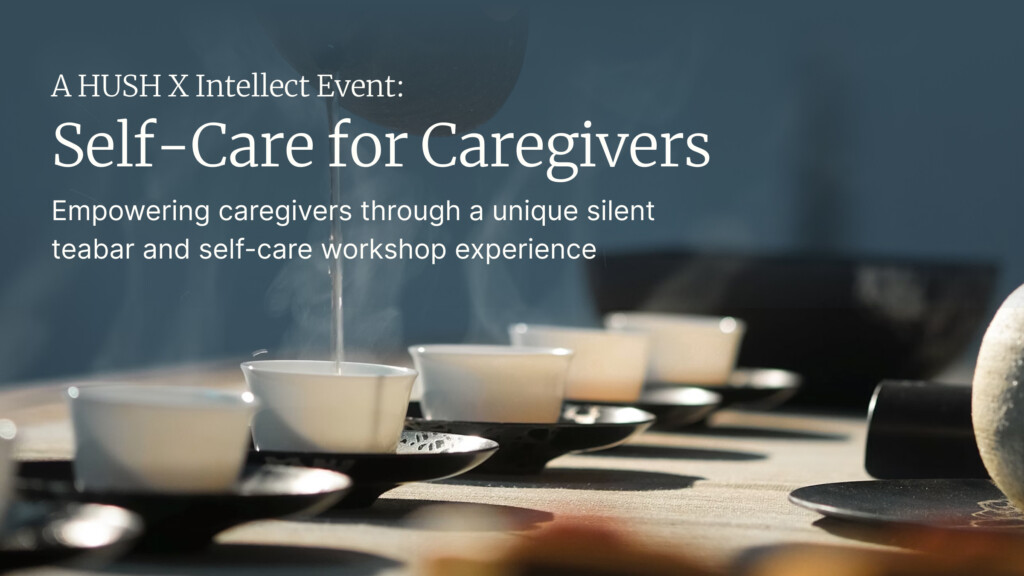Much has been discussed about the topic of psychological safety—the belief that one is able to speak up transparently or make mistakes without getting unnecessarily penalised or shamed.
In the workplace, this sense of mutual trust allows employees to bring their fullest selves to their jobs.
It prevents hands-on operations from going wrong due to careless oversight, or inaccurate information being shared in crucial public settings.
Internally, it keeps employees engaged, motivated, and resilient, forging better teamwork and greater innovation through higher quality communication, which has never been more relevant in hybrid working settings.
The root of the problem
The question of how to create psychological safety at work seems to have quickly gained momentum over the last few years due to a distinct lack of it in corporations today.
Conventional constructs of management in the workplace separate “work” and “non-work” discussions, drawing a clear line for managers in the spirit of efficiency. This tenet, however, proves anything but favourable towards creating psychological safety.
By focusing on work matters and disregarding non-work issues as irrelevant, managers can often be seen as uncaring, while workers feel that they are not understood, heard, or valued in the office.
Even before COVID-19 forced the world to change its approach to work, only a dismal 30% of employees responding to a 2017 Gallup survey strongly agreed that their opinions counted at work. Amongst the 70% who do not feel like they mattered is a breeding ground for increased turnover, a higher number of safety incidents, and decreased productivity.
Why your open door feels closed
While many companies have since started implementing open-door policies to encourage transparent communication in hybrid working settings, reality seems to be too often falling short of the ideals they are preaching.
Thais Pietro, leadership and behavioural health coach at Intellect, attributes this gap to the lack of three factors in a company’s leadership:
- Proactive engagement with their employees: Managers need to actively demonstrate that they are genuinely committed to making themselves accessible, and being transparent with each other.
- Inclusivity in all ranks of the workforce: Showing employees that they are seen and valued makes them feel like they truly belong in the workplace, paving the way for them to make a significant impact in their organisations.
- Empathy: Being a model for compassion and empathy towards colleagues also goes a long way in improving effective communication, leading to positive outcomes when facing and embracing conflict.
“Leaders gain the team’s trust by being open and approachable,” Thais emphasises. “Do [the above] consistently and thoughtfully, and you won’t have to tell people that your door is open.”
Adjacent problems to remote work
Forcing much of the world into relative isolation for the better part of two years, COVID-19 has also catalysed the shift towards remote and hybrid working.
While many will agree that the accelerated digital transformation is much needed, the new way of working has also largely changed the dynamics of work, exacerbating ongoing issues with psychological safety and creating new ones.

Hybrid working greatly blurs the boundaries between work and life. As discussed in this article on our blog, employees working from home can feel stretched with new routines to juggle, overcompensate by being responsive past working hours, and feel generally disconnected from the rest of their colleagues.
As team leaders, managers shoulder the enormous responsibility of maintaining and promoting psychological safety amongst their team members to keep levels of trust, transparency, and team effectiveness high.
However, the starkly different environment in hybrid working means that leaders have to take a different approach to manage their teams, taking each employee’s personal circumstances like childcare, mental health, and health-risk concerns into their staffing, scheduling and coordinating decisions.
Identifying low psychological safety remotely
When it comes to communication in hybrid working settings, chat messages and virtual meetings strip away much of the non-verbal cues that observant managers may be able to pick up. This impedes their judgement of an employee’s interest in work and the level of psychological safety in their teams.
Thais highlights the following points as hints to managers that their team member may not currently be feeling psychologically safe:
- Lower participation during meetings, where employees are not asking as many questions or contributing ideas, or appear to be apathetic or indifferent
- A generally low energy level exhibited, and a lack of commitment to timelines and deliverables
- Discomfort in owning up to their mistakes, and avoidance of difficult conversations
- Not reaching out for help or feedback when they need it
In such scenarios, managers should avoid moving into task-based discussions too quickly, as that may reinforce the employee’s perception of the manager being solely concerned about work, and lower their trust even further.

Instead, taking the time to genuinely ask about them, listening actively and acknowledging where they are mentally at that moment is crucial to regaining their trust and promoting a psychologically safer space, even with the hybrid working arrangements.
“In hybrid working, leaders need to practice listening to employees, but they are also responsible for setting the tone by adding positivity to their meetings and interactions,” says Thais.
This, she elaborates, can be as simple as showing genuine excitement over a project or task to lift the mood, even in virtual meetings.
Another important practice is for leaders to demonstrate that they are fallible human beings who can make mistakes.
Leaders can exhibit self-care habits and self-compassion in the workplace to humanise themselves and build trusting relationships with their team members. This gives space to their team members to acknowledge and accept their own fallibility, in order to better deal with the inevitable mistakes they will make.
How to begin changing things
So how can managers promote a better sense of psychological safety amongst their team in hybrid working arrangements?
Thais shares three key ideas as springboards.
1. Start with a higher purpose
By taking time to speak with their team about why they feel psychological safety is important, managers can get employees on board with how all parties stand to benefit from it.
Especially with the hybrid working settings, managers can and should then make a regular practice of connecting with team members individually to constantly understand how safe they feel, and what can be done to enhance that feeling.
Day to day, managers can constantly reinforce their commitment to psychological safety by promoting a sense of inclusion amongst their team members, giving them space to challenge the status quo, as well as providing opportunities to discuss both professional and personal concerns candidly.
2. Support rather than blame
Managers can help provide positive support when addressing their team members’ failures and disappointments.
Candor can still be practiced to acknowledge the source and cause of mistakes, without assigning blame.
Following that, managers can turn the conversation towards solutions. Shifting the focus from blame to problem-solving encourages innovation, rather than sabotaging it by teaching employees to fear risk-taking or failure.
3. Embrace conflict productively
Where there are disagreements and conflict, managers can promote dialogue and productive debate by focusing on the desirable outcome for the team, rather than zooming into individual and personal choices or opinions.
Encouraging collaborative discourse in such situations helps to create space for new ideas, out-of-the-box solutions, and greater creativity, fostering more innovative mindsets in your team.
Playing the long game
As the nature of work continues to evolve and become increasingly distributed, the tips and tools discussed here will only become more crucial in helping leaders create safe spaces for their employees.
With the trend of hybrid working looking to far outlive the pandemic that sparked its adoption, managers at all levels will benefit from taking these notes to heart, and start practising them as soon as possible.
Of course, when all is said and done, the greatest change towards better psychological safety has to come from an organisation’s leadership.
To those interested in overhauling the way they work to make psychological safety an integral way of life in their offices, Thais suggests a series of facilitated discussions, ideally conducted by an external facilitator for neutrality, where team members share the challenges they face at work.
This might include topics like expectations of availability, response speeds, norms, priorities, KPIs, and workloads.
The results of these discussions will allow top management to conceive a better way of working across the board, and improve psychological safety in your organisation in the long run.




